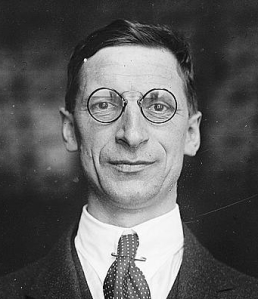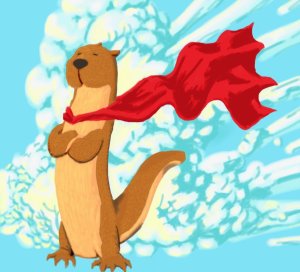Or, one man’s quest for the least compelling title ever.
Fantasy has arrived. It’s gone mainstream.
It’s made a remarkable transition in the past decade. When I began reading fantasy as a young teenager, the genre was unpopular; strange and marginal. It certainly wasn’t cool. The young adult section of my local (read, an hour’s bumpy bus ride away) library was dominated by realism. Shelves packed with gritty dramas. Runaways, drug and alcohol abuse, bullies and broken homes. Characters that moved to new places- new schools- who, through adversity, discovered the transcendent power of friendship were much in evidence. The stories were always set in a recognisable, realistic Earth, often situated in specific geographies.
Yes, there were fantasy books aimed at my demographic. But in the rainy world of Letterkenny Library, that small selection was recognisably other. Alternate. They were not the standard and were offered, it seemed, only to fulfil the library’s holistic mission statement. The same applied in Letterkenny’s two bookstores, though at least there, fantasy books were grouped by genre, rather than recommended reading age, so that I stumbled across several inappropriately educational and, no doubt, formative scenes as a kid.

Hello!
How different it is now though. The fantasy sections in libraries and bookstores are huge, walk-in areas stretching multiple floor-to-ceiling bookshelves. Fantasy is everywhere too. Since the popular and financial successes of the Lord of the Rings movie trilogy and the Harry Potter books and movies, fantasy has exploded onto the world stage and established itself on the public consciousness in the way that science fiction, its chrome-plated cousin, managed in the late seventies and eighties.
Fantasy stories, old and new, have become part of popular literary discourse in a way that they have never managed in the history of the genre. Older ‘classics’ of the genre such as A Game of Thrones, Wizards’ First Rule (adapted as Legend of the Seeker), His Dark Materials and Where the Wild Things Are, brought to the public’s attention through screen adaptations, are enjoying their newfound life in the sunshine, while new movies and series such as Twilight, Eragon, Snow White and the Huntsman and, I will argue, The Hunger Games, enter the mainstream directly, skipping the apprenticeship older series once served in obscurity.
My inclusion of The Hunger Games in the above list might cause consternation. It raises a question of definition. According to the Cambridge Companion to Fantasy Literature, ‘the major theorists in the field […] all agree that fantasy is about the construction of the impossible, whereas science fiction may be about the unlikely, but is grounded in the scientifically possible’. Most ‘theorists in the field’, then, would agree that The Hunger Games, set in an Orwellian, explicitly American future, is science fiction. However, the incredibly developed technology, ‘indistinguishable from magic’ as the overused quote has it, the epic sweep of the narrative, the familiar themes of friendship, loyalty and hope in the face of impossible odds, not to mention distinctly un-futuristic motifs such as Katniss’ bow, the hunter in the woods, the blood and the rose and so forth, highlight The Hunger Games’ tonal relationship with fantasy. The movie’s marketing reinforces this notion: it was aimed at Twilight fans, not Trekkies.

This is what they aim at Trekkies
The themes I mention in from The Hunger Games are not so different to those I encountered in the young adult section of the library all those years ago. Protagonists find themselves not fitting in, encountering new places and people, discovering the power of friendship and battling to overcome impossible odds.
Of course with parameters that bland, almost any book could fit the template.
But the question remains why fantasy has always appealed to me where these books rarely do. I always slightly disliked familiar settings and the more I actually knew about the place they were set, the more I actively hated them. Books set in contemporary Ireland were the worst. There was so often a soullessness about them and the characters seemed constrained, dull and unexciting to boot. Ironically, I never really believed realistic settings.
And there, I think, lies fantasy’s appeal. The genre’s roots are in fairy-tales, legends and medieval adventure-stories. They abound with the supernatural: ghosts and monsters, witches and fairies; things we are raised with from childhood. Fantasy goes for the gut, for the archetypal, and so can bypass intellectual objections or preconceived notions. It can bring us back to when we knew there were things that went bump in the night. The worst fantasy never fills in these archetypes. It deals in stereotype, mistaking form for content. But the best fantasy makes them at once specific and universal; recognisable but with a power to shock that comes directly from their familiarity.
And, to come to my point, it has gone global. The prominence of Twilight, The Lord of the Rings, Harry Potter and Game of Thrones in meme culture alone is a testament to the genre’s presence in people’s minds. This ubiquity is a new development, one unprecedented in the history of the genre. Not only is fantasy popular all across the globe, but the same fantasy is popular. Thanks to Peter Jackson’s movies, the same Middle-Earth has been experienced by millions of people. Most of you reading this have seen Diagon Alley and Hogwarts in your mind’s eye and on screen. The globalisation of fantasy has created shared imaginative worlds.
When you read Catcher in the Rye, you are experiencing Salinger’s New York, yes. But to it you bring all sorts of cultural hang-ups and personal notions of what New York is, was or may be. If you’ve read, say, The Great Gatsby or seen Friends or a movie set in the city, it’s going to influence your reconstruction of Holden Caulfield’s world. Salinger’s New York is a heterogeneous morass of images and notions that will exist differently and independently in the mind of each person reading Catcher because each of those people already believes they know what a New York is.
Not so Winterfell, I argue, or Minas Tirith, or Ankh-Morpork. We approach these locations with no prior experience, in the knowledge that they do not actually exist. We do not equate them to any real-world locale and so do not bring specific biases to bear in our experience of the worlds. To us, Middle-Earth or Westeros exists outside of our reality, on some plane between our minds and those of Tolkien or George R. R. Martin, not as an actual location in our world.
These worlds are imaginative spaces that are now shared by millions of people and accessed every day. Such a thing has never before existed in the history of literature. The fantastic mode, that step towards the impossible, the magical, is a liberating form. It creates fresh platforms on which to investigate and interrogate ideas while simultaneously drawing on the most primal narratives and forms we know. Its ability to create new worlds and unite millions of people in an imaginative space outside of the constraints of reality makes it an exciting, active cultural force.
Fantasy has arrived and I think it’s here to stay.

















